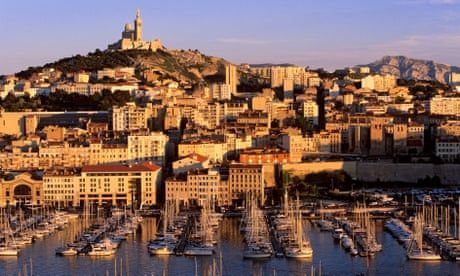
France’s second city makes headlines for crime, but also for being welcoming and progressive. Neither cliche does it justice
Earlier this month, France’s second city suffered a pair of brutal killings that appeared to be the latest in a long list of tragedies inflicted by drug-related turf wars. In a place where groups have battled for years over highly coveted “points of sale”, many of them in the city’s impoverished northern neighbourhoods, the age of those involved in the latest killings was especially stomach-churning. The Marseille prosecutor, Nicolas Bessone, described how following the recent gang killing of a 15-year-old, a 14-year-old had been hired to carry out a revenge killing. A prisoner had recruited the teenager, the prosecutor said, and “organised the logistics for him to be collected by car and brought to a hotel room in Marseille”. The 14-year-old then allegedly shot and killed the taxi driver, who had nothing to do with the drugs trade, for not waiting for him.
Unfortunately, grim stories such as these have become one of the big reasons Marseille makes headlines not just in France, but in the English-language press too. In addition to putting the spotlight on figures clamouring for more police authority and harsher prison sentences, they fuel a particular image of the port city in the rightwing imagination: Marseille as the ultimate symbol of French decline, a once-great metropolis torn asunder by decades of lawlessness and immigration that has become so dangerous it is now practically unliveable. Somehow, this reactionary fantasy hasn’t yet damaged a radically different image of the city gaining steam: Marseille as a promised land for twenty- and thirtysomethings seeking sunshine, natural beauty and just the right dose of urban “grit.”
Continue reading...